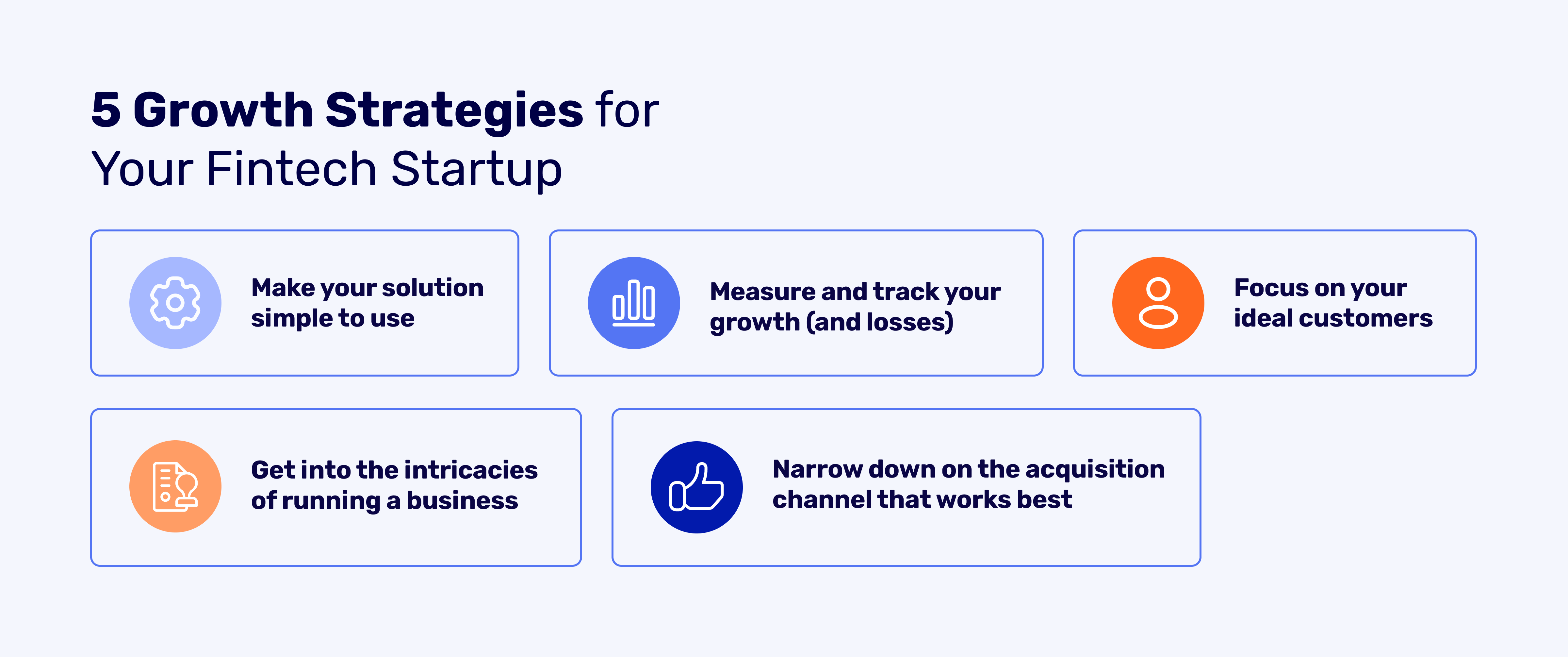Starting a fintech company can cost anywhere from a few thousand to several million dollars, depending on factors such as the scope of the project, technology requirements, regulatory compliance, and team size. However, the exact cost can only be determined by conducting a thorough analysis and creating a detailed business plan.
Investing in research, development, infrastructure, talent acquisition, marketing, and compliance-related expenses are all part of the cost to start a fintech company. Keep in mind that additional costs may arise as the company grows and scales.
Understanding Fintech And Its Costs
Fintech companies, short for financial technology, are businesses that rely heavily on technology to provide various financial services to consumers and businesses. These services can include payment processing, lending, investing, insurance, and more.
Fintech companies leverage advanced technology solutions such as artificial intelligence, machine learning, blockchain, and others to create innovative and user-friendly financial products and services. By integrating technology into traditional financial processes, fintech companies aim to offer more efficient, convenient, and cost-effective solutions to their customers.
Starting a fintech company can vary greatly in terms of costs, depending on several factors. Here are the key considerations that contribute to the overall cost of launching a fintech company:
- Infrastructure and Technology: Building the necessary infrastructure and developing the required technology platforms is an essential aspect of starting a fintech company. This includes the development of secure and scalable software applications, integration with third-party services and APIs, and establishing robust IT infrastructure. These activities can require significant investment in terms of personnel, hardware, software, and ongoing maintenance and updates.
- Legal and Regulatory Compliance: Compliance with financial regulations and licensing requirements is a crucial part of operating a fintech company. Ensuring compliance can involve hiring legal and regulatory experts, acquiring necessary licenses and permits, conducting audits, implementing security measures, and maintaining compliance with evolving regulations. These compliance-related activities incur costs that need to be factored into the overall budget.
- Talent and Human Resources: Building a competent team is crucial for the success of any fintech company. Hiring skilled professionals, such as developers, engineers, designers, data analysts, and finance experts, is necessary to develop and manage the technology, handle operations, and provide customer support. Attracting and retaining top talent often comes with financial implications, including competitive salaries, benefits, and training programs.
- Marketing and Customer Acquisition: Promoting a fintech company and acquiring customers requires a well-thought-out marketing strategy. This can include creating a brand identity, developing a user-friendly website and mobile app, implementing digital marketing campaigns, advertising, and customer onboarding processes. Marketing and customer acquisition efforts come with associated costs, such as advertising budgets, marketing agency fees, and customer acquisition expenses.
- Partnerships and Integrations: Collaborating with other financial institutions, payment service providers, and fintech partners can be beneficial for a fintech startup. These partnerships often involve integration efforts, API access fees, and revenue-sharing agreements. Depending on the scale and complexity of the partnerships, costs can vary significantly.
It’s important to note that the actual cost of starting a fintech company can vary depending on the specific business model, target market, geographical location, and the scale of operations. Therefore, it’s crucial for aspiring fintech entrepreneurs to conduct a thorough analysis and budgeting process to determine the precise costs involved in their unique circumstances.
In conclusion, understanding the costs associated with starting a fintech company is essential to plan and allocate resources effectively. By considering the infrastructure and technology, legal and regulatory compliance, talent and human resources, marketing and customer acquisition, and partnerships and integrations, entrepreneurs can gain a comprehensive understanding of the financial commitments required to kickstart their fintech venture.
:max_bytes(150000):strip_icc()/Term-Definitions_NDA-438a26fefa014d06b83b75b02d8403a6.jpg)
Credit: www.investopedia.com
Budgeting For Fintech Startups
Starting a fintech company requires careful budgeting to achieve financial success. Analyzing initial investment needs and considering factors affecting budget decisions are crucial steps in this process.
Analyzing Initial Investment Needs
- Market Research for Identifying Target Audience
- Technology Infrastructure Costs
- Legal and Compliance Expenses
- Employee Salaries and Benefits
Factors Affecting Budgeting Decisions
- Regulatory Environment
- Competition Analysis
- Revenue Generation Potential
- Risk Management Strategies
Determining the right budget for a fintech startup involves considering various aspects, such as market trends, operational expenses, and revenue projections. By carefully analyzing these factors, entrepreneurs can create a solid financial plan to support their venture.
Determining Development Costs
When starting a fintech company, it is crucial to accurately determine the development costs involved. This will help you create a realistic budget and secure the necessary funding to bring your fintech idea to life. In this section, we will explore two key factors that contribute to the development costs of a fintech company: investment in technology and the cost of product production.
Investment In Technology
Investing in the right technology is essential for the success of a fintech company. It is important to carefully consider the technology stack, infrastructure, and security measures necessary to build a robust and scalable fintech product. The cost of technology can vary depending on the complexity of your product and the technologies you choose to implement.
Here are a few key factors that will impact the investment in technology:
- The complexity of the fintech solution and its features
- The need for integrations with banking systems, payment gateways, or third-party APIs
- Data storage and processing requirements
- Compliance and security measures
It is important to work closely with technology experts and developers who understand the specific requirements of the fintech industry. They will be able to guide you in making smart technology investments that meet your needs without overspending.
Cost Of Product Production
Creating a fintech product involves various costs associated with design, development, and testing. These costs can be categorized into the following:
- Design: This includes the cost of user experience (UX) and user interface (UI) design, creating a visually appealing and user-friendly fintech product.
- Development: This refers to the cost of software development, coding, and programming required to build the core functionalities of your fintech solution.
- Testing: Quality assurance and testing are crucial stages in the product development lifecycle. This ensures that your fintech product works seamlessly and meets industry standards.
In addition to these costs, it is important to consider ongoing maintenance and support expenses, including bug fixing, updates, and customer support. These costs will ensure the long-term success and stability of your fintech product.
Overall, determining the development costs of a fintech company requires careful consideration of technology investments and the various stages of product production. By understanding these costs, you can plan your budget effectively and set yourself up for success in the competitive fintech market.
Navigating Regulatory Compliance
Navigating regulatory compliance is a crucial aspect to consider when determining the cost of starting a fintech company. From obtaining licenses to ensuring data protection, compliance expenses can vary depending on the company’s specific operations and geographical regulations. Implementing robust compliance measures is essential for sustainable growth and industry reputation.
Understanding Compliance Requirements
Compliance with regulatory standards is paramount for any fintech startup to ensure legal operations.
Financial Regulations And Associated Costs
Fintech companies must allocate financial resources to comply with industry regulations.
Assessing Application Development Costs
When planning to start a fintech company, assessing the costs for application development plays a crucial role in budgeting and financial planning. A well-thought-out budget can prevent overspending and ensure that the company can allocate resources efficiently to drive successful software development. In this section, we will delve into the key factors that impact the costs of fintech app development.
Estimating Fintech App Development Expenses
Estimating the expenses for fintech app development involves considering various elements such as technology, features, and the development team’s expertise. It’s essential to create a comprehensive budget that accounts for all stages of development, including design, coding, testing, and deployment. Having a clear understanding of the financial investment required for app development is vital for the sustainable growth of a fintech startup.
Factors Impacting App Development Costs
- 1. Technology Stack: The choice of technology stack significantly influences development costs. Selecting the right technologies that align with the company’s long-term goals can help in cost optimization.
- 2. Complexity and Features: The complexity of the fintech app and the range of features integrated directly impact the development expenses. Advanced features and intricate functionalities may lead to higher costs.
- 3. Regulatory Compliance: Compliance with financial regulations and security standards is imperative for fintech applications, and this can add to the development expenses due to the required expertise and additional testing.
- 4. Development Team: The skill set and experience of the development team also contribute to the overall app development costs. Hiring a proficient team may require a higher investment but can result in a superior quality product.
- 5. Maintenance and Support: Factoring in post-development expenses for maintenance and support is crucial. Ongoing support costs should be accounted for to ensure the app’s seamless operation and user satisfaction.

Credit: www.linkedin.com
Planning Financial Resources
Starting a fintech company involves several financial considerations. The costs include technology, product production, and compliance. These can vary depending on the services offered and the scale of the company. It’s crucial to conduct thorough research and financial planning to estimate the specific costs associated with starting a fintech company.
Creating A Fintech Startup Business Plan
Before delving into the financial aspects of launching a fintech company, one of the fundamental steps is creating a comprehensive business plan. This plan should outline your company’s vision, mission, target market, unique value proposition, revenue streams, and growth strategies. A well-structured business plan not only provides direction and clarity but is also essential for attracting investors and securing funding.
Determining Required Financial Resources
Once the business plan is in place, the next critical step is to determine the required financial resources to start and sustain the fintech company. This involves meticulous estimation and planning to cover various aspects such as technology infrastructure, regulatory compliance, staffing, marketing, and operational expenses.
Real Costs And Personal Experiences
Starting a fintech company incurs costs like technology development, compliance, and product production. Personal experiences reveal unique financial considerations that play a crucial role in determining the overall expenses of setting up such ventures.
Insights From Quora: Startup Experiences
Starting a fintech company is an exciting venture, but it comes with several financial considerations. To gain some insights into the reality of costs, we turned to Quora, a popular question-and-answer platform, where entrepreneurs and industry experts share their personal experiences.
One Quora user, who successfully launched their fintech startup, mentioned that the initial costs can vary depending on the type of financial services you plan to provide. For example, if your company focuses on peer-to-peer lending, you might need to invest in building a robust lending platform and acquire the necessary licenses, which can cost upwards of $100,000.
Another Quora user shared their experience of starting a robo-advisory platform. They mentioned that the development costs for their platform alone amounted to around $200,000. Additionally, they had to allocate a significant portion of their budget for legal and compliance expenses, marketing, and hiring talented professionals.
| Expense Category | Average Cost |
|---|---|
| Platform Development | $200,000 |
| Legal and Compliance | $50,000 |
| Marketing | $30,000 |
| Hiring | $100,000 |
While these figures provide some perspective, it’s important to note that fintech development costs can vary greatly depending on the complexity of your product, the team size, location, and many other factors. It’s crucial to conduct thorough research and consultations with industry professionals to get a better understanding of the specific costs associated with your fintech venture.
The Reality Of Fintech Development Costs
When it comes to fintech development costs, it is essential to have a clear understanding of the different expense categories involved. These typically include:
- Platform Development: This is often the most significant expense for fintech startups. Building a robust and user-friendly platform requires skilled developers, designers, and infrastructure setup. The complexity and features of your platform will largely determine the cost.
- Legal and Compliance: Fintech companies operate in a highly regulated environment, which means investing in legal and compliance services is crucial. These expenses include acquiring licenses, ensuring compliance with data protection laws, and handling regulatory filings.
- Marketing: Effective marketing plays a vital role in attracting customers to your fintech platform. From branding and website development to advertising and user acquisition campaigns, allocating a budget for marketing activities is necessary for gaining traction and growing your user base.
- Hiring: Talent acquisition is another significant expense for fintech startups. Hiring skilled professionals with experience in finance, technology, compliance, and customer service can be costly but is crucial for scaling your operations and delivering high-quality services.
:max_bytes(150000):strip_icc()/terms_i_intellectualproperty_asp-FINAL-f1e432ec66da49fe9ce0177ddf0d9166.jpg)
Credit: www.investopedia.com
Conclusion: Investing Wisely In Fintech
Investing wisely in fintech requires careful consideration of the costs involved in starting a fintech company. From technology and product production to compliance, understanding these expenses is essential for making informed investment decisions.
Smart Strategies For Budget Allocation
When starting a fintech company, allocate your budget wisely to maximize efficiency and growth. Consider outsourcing non-core activities to reduce costs.
Building A Sustainable Fintech Company
Focus on creating a strong foundation for your fintech company by investing in robust technology infrastructure and talent acquisition. Sustainable growth requires a solid financial plan.
Frequently Asked Questions For How Much Does It Cost To Start A Fintech Company
Do Fintech Companies Make Money?
Fintech companies make money by offering financial services with technology, reaching larger audiences at lower costs.
How To Start A Fintech Company?
To start a fintech company, define your niche, form a team, conduct market research, and create a business plan. Seek legal advice, obtain necessary licenses, and get funding. Develop and launch your product, marketing your services across digital platforms. Continuously enhance and innovate your offerings.
What Qualifies As A Fintech Company?
A fintech company uses technology to offer financial services to consumers and businesses. They provide services at a lower cost than traditional institutions and use technology to reach a wider audience.
Does Fintech Cost Money?
Yes, fintech typically costs money. Companies may charge based on usage, transactions, data volume, or users.
Conclusion
Starting a fintech company can be an exciting and lucrative venture, but it’s important to understand the associated costs. From technology development to compliance and product production, there are various expenses involved. While there is no one-size-fits-all answer to how much it costs to start a fintech company, it typically requires a significant investment.
However, by carefully budgeting and planning, entrepreneurs can navigate these costs and build a successful fintech business. Remember, it’s crucial to thoroughly research and understand the financial requirements specific to your fintech niche before diving into the journey of entrepreneurship.













Leave a Reply